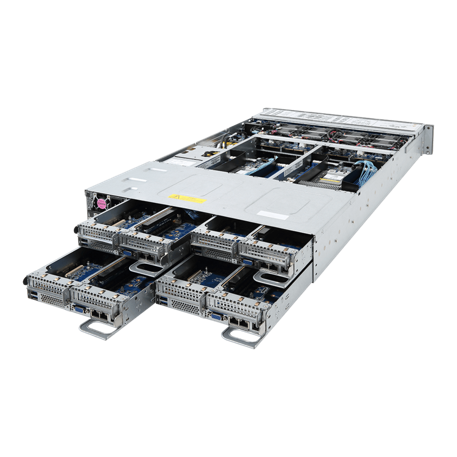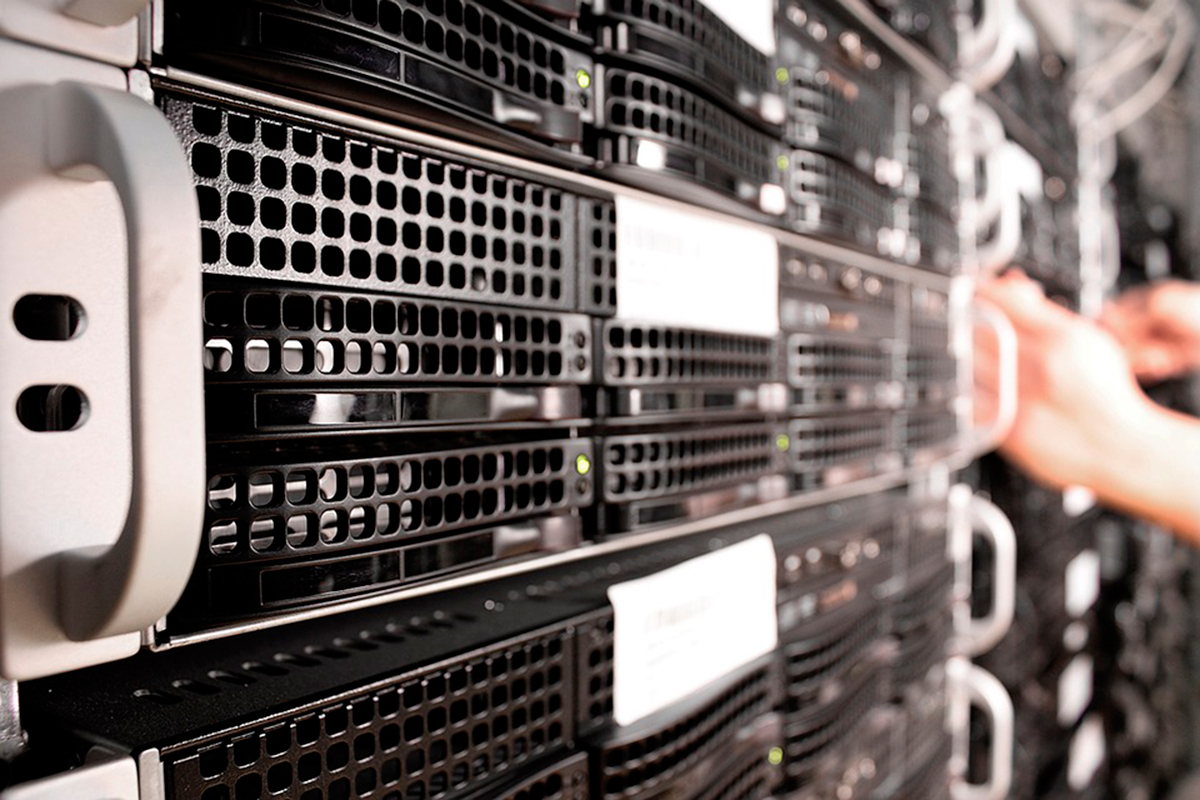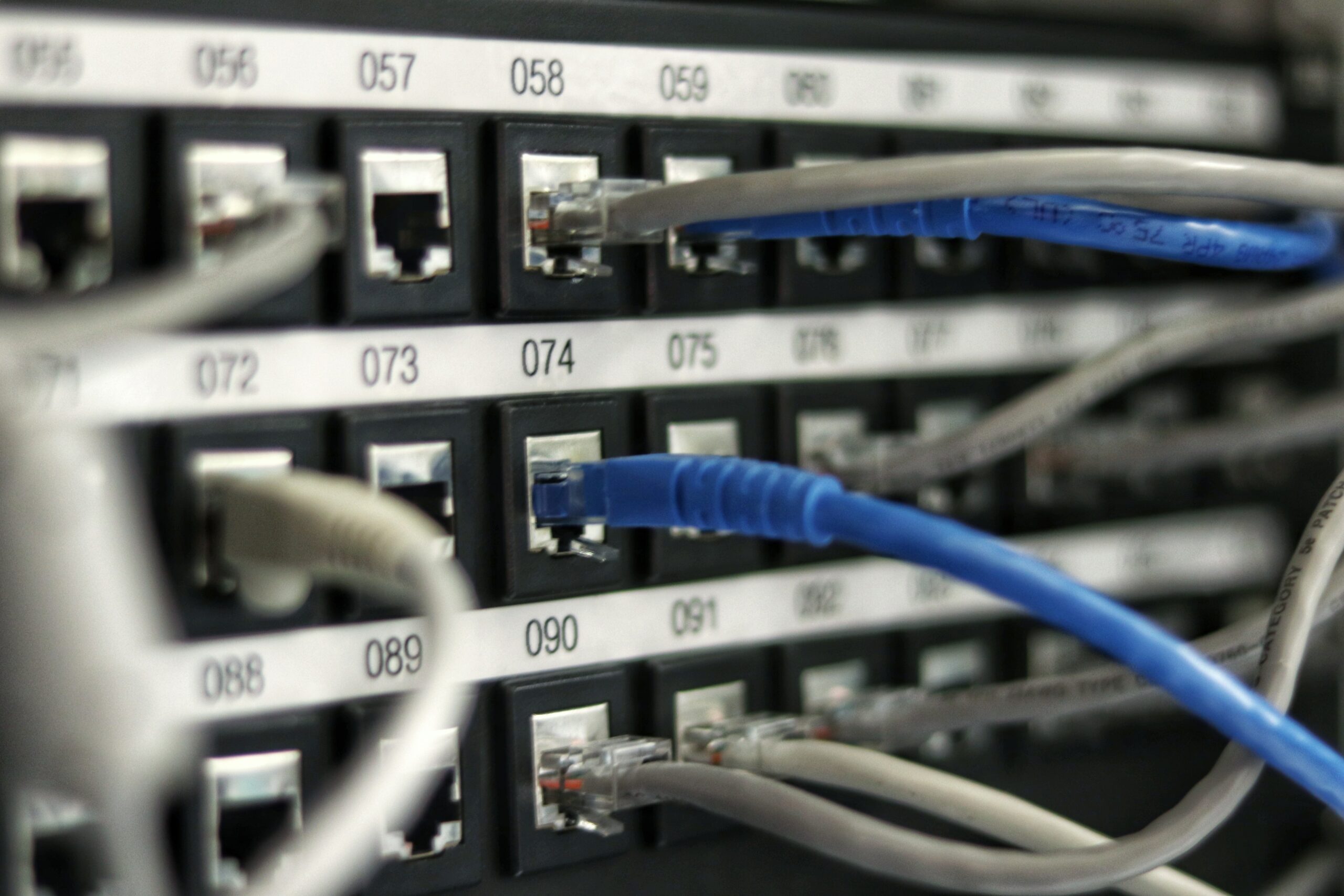A multi-node server is an advanced configuration within the world of information technology, designed to optimize the performance, scalability and availability of services and applications. Unlike traditional servers, which rely on a single physical or virtual unit to manage all tasks, a multi-node server distributes these responsibilities across multiple independent nodes, each of which can be a complete computer in itself. This layout allows multi-node systems to handle large volumes of requests and operations simultaneously, significantly improving performance and efficiency.
The beauty of a multi-node server lies in its ability to grow and adapt as needed. If the library suddenly receives more books or there are more visitors requesting books, more “librarians” (nodes) can be added to handle the increase in work. This flexibility ensures that everything runs smoothly, even when demand is high. Additionally, if one of the nodes has a problem or fails, the others can continue working, ensuring that the system as a whole is more resilient and reliable. Thus, a multi-node server offers a powerful and efficient way to handle information and tasks in the vast digital world, ensuring that everything from websites to applications runs without interruption for users.

What uses can you give to a multinode server?

Multi-node servers are incredibly versatile and can be used in a wide range of applications, benefiting different sectors due to their efficiency, scalability and reliability. Here are some examples of how you can take advantage of these powerful systems:
- Cloud computing: In the cloud world, multi-node servers are essential for offering services such as cloud storage, web applications, and online databases. They allow cloud service providers to scale their resources quickly to meet user demand, ensuring optimal performance and constant availability.
- Big Data and data analytics: For companies and organizations that work with large volumes of data, multi-node servers are essential for processing, analyzing and storing massive amounts of information. This is crucial for data-driven decision making, scientific research, and driving innovations in fields such as artificial intelligence and machine learning.
- Web and Application Hosting: High-traffic websites and applications greatly benefit from multi-node architecture as it can handle many requests simultaneously, distributing the load across multiple nodes to maintain performance and speed, thus ensuring a smooth user experience. fluid and fast.
- Streaming media content: For video and music streaming platforms, multi-node servers enable streaming content to millions of users around the world without interruption, dynamically adapting to fluctuations in demand and providing efficient content delivery.
- Online Gaming and eSports: Multi-node servers are key for online multiplayer gaming and eSports, where a fast and stable connection is required for players around the world. These servers facilitate real-time synchronization, minimize latency, and provide a fair, lag-free gaming experience.
- Software development and testing environments: Developers use multi-node servers to create and test applications in different environments and conditions, ensuring that the software works correctly under various loads and on different platforms before it is released.
- Disaster recovery and business continuity: Multi-node servers also play a crucial role in organizations’ disaster recovery strategy, enabling rapid recovery of data and critical operations in the event of system failures or natural disasters, thus ensuring business continuity. of the business.
In summary, multi-node servers offer a robust and flexible solution for a variety of technological needs, excelling in environments that require high availability, scalability and performance.
What are the advantages of choosing a multinode server?

Choosing a multi-node server brings with it a number of significant advantages, especially for organizations and projects that require high availability, scalability and efficiency in handling data and applications. Here are some of the main advantages:
- Scalability: Multi-node servers allow you to easily add more nodes as processing and storage needs increase. This means organizations can expand their capabilities efficiently without having to redesign their entire infrastructure from scratch.
- High availability and reliability: By distributing tasks among several nodes, it is ensured that, if one fails, the others can continue operating without interruptions. This minimizes downtime and ensures a continuous and reliable user experience.
- Improved performance: The workload is distributed among the different nodes, which allows handling a greater number of simultaneous requests, improving response times and optimizing the use of resources. This is crucial for critical applications and high-traffic websites.
- Operational Flexibility: Multi-node servers offer the flexibility to deploy different technologies and applications on specific nodes, allowing for a more customized and efficient configuration based on the needs of the project or organization.
- Long-term cost efficiency: Although the initial investment may be higher compared to traditional servers, the scalability and ability to adapt to changing needs without large additional investments make multi-node servers more cost-effective in the long term.
- Improved data management: For projects involving big data, multi-node servers allow faster and more efficient processing of large volumes of data, facilitating complex analyzes and obtaining valuable insights in less time.
- Disaster recovery: Distributing data and applications across multiple nodes not only contributes to operational efficiency, but also improves resilience to failures or disasters, ensuring protection of critical data and business continuity.
Choosing a multi-node server, therefore, offers a robust and adaptable solution to meet today’s technological challenges, especially in environments that demand high availability, performance and scalability.
How to buy my multinode server at Ibertronica?
In our online catalog we have numerous servers already preconfigured, you can take a look at them in the following LINK.
You can also contact us through our web page, telephone (917 10 95 15), mail ([email protected]) or social networks, and request a quote without obligation. An Ibertrónica advisor will assist you and help you choose the multinode server that best suits your needs and objectives.
With multinode servers, you can gain efficiency, scalability and reliability in all your operations within your organization, company or project. All this, with a competitive price and adjusted to your needs.







